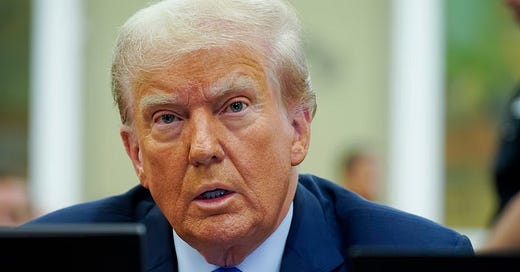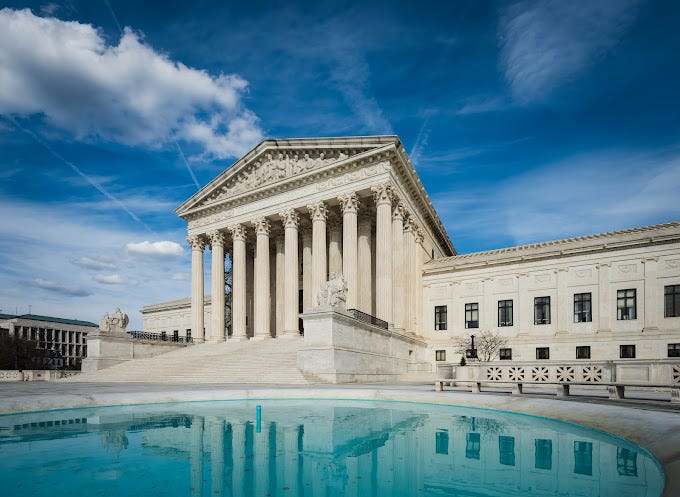Trump has no immunity from Jan. 6 prosecution: DC Appeals Court unanimously rules
Removes one more hurdle to his election results obstruction criminal trial in DC; the US Supreme Court may still intervene.
DC Appeal Court’s Unanimous Verdict
A pivotal ruling by a federal appeals court has definitively stated that former President Donald Trump must face trial over his efforts to remain in power following the 2020 election defeat. Issued on February 6, this judgment firmly rejects Trump’s extensive and expansive claim of presidential immunity, underlining its potentially perilous implications and its foundation not being supported by the Constitution.
Overruling Trump's Immunity Claim
The appellate court's ruling decisively removes a major legal barrier to Trump's criminal proceedings in a Washington D.C. federal court related to his efforts to interfere with the 2020 presidential election outcome. The appellate judgment effectively upholds the stance of the presiding DC Federal Judge, Tanya Chutkan, rejecting the defense's claims of presidential immunity as not applicable under the given facts and circumstances. During the public hearings, the three-judge panel expressed their apprehension about the extreme consequences of Trump’s defense, including a theoretical situation in which a president could sanction the assassination of a political adversary. Their collective opinion highlighted the danger of Trump’s purported actions—an "unprecedented attack on the framework of our government"—to democracy, should they remain beyond the scope of criminal prosecution.
Implications for Future Presidency
The judges firmly rejected the notion that a president possesses limitless authority to commit crimes that could undermine the executive branch's most fundamental check: the acknowledgment and enactment of election results. This ruling underscores the constitutional limits of executive power, rejecting the idea that the executive branch could override individual voting rights without consequence.
The Road Ahead
This pivotal ruling arrives just before the Supreme Court is set to deliberate on February 8 another critical question related to Trump's candidacy: whether his actions, including those of abetment, surrounding January 6, 2021, classify him as an insurrectionist, thus disqualifying him from presidential eligibility under the Constitution. Trump's legal battle continues as he seeks further review by the Supreme Court, facing tight deadlines that could affect his ability to delay the federal trial until after the presidential election.
The Court's Unified Voice
The appellate court's opinion, delivered per curiam, presents a robust argument against potential Supreme Court intervention, touching upon all the points raised by Trump's legal team. Legal experts see this as a significant barrier to Trump's efforts to appeal, with the Supreme Court facing a crucial decision on whether to expedite the case within its current term.
Presidential Power and Accountability
The ruling critically examines the paradox in Trump's claims, emphasizing that a president's duty to uphold the law inherently excludes the permission to break it. This principle serves as a deterrent against power abuses and criminal behavior, ensuring that every president faces the responsibility of lawful conduct.
Historical Context and Precedent
The decision also navigates through historical instances of former presidents facing legal vulnerabilities, debunking the notion of absolute immunity. This includes references to Richard Nixon's pardon and Bill Clinton's legal concessions, illustrating the judiciary's role in maintaining checks on presidential power.
Future Legal Challenges
Although the ruling is not directly applicable in other jurisdictions where Trump faces charges, it sets a precedent that could influence similar arguments in other cases. Trump's legal strategies in Georgia and other states like Florida are under scrutiny, with the overarching question of a former president's susceptibility to state prosecution remaining open for further legal debate.
Broader Implications
This ruling not only impacts Trump's immediate legal battles but also raises profound questions about the criminal accountability of sitting or former presidents, potentially influencing the landscape of American presidential politics and the interpretation of executive immunity.
As the legal saga unfolds, the implications of this decision will reverberate through the upcoming presidential election and beyond, testing the boundaries of presidential power and accountability in the United States, in the run-up to the presidential election of 2024.






